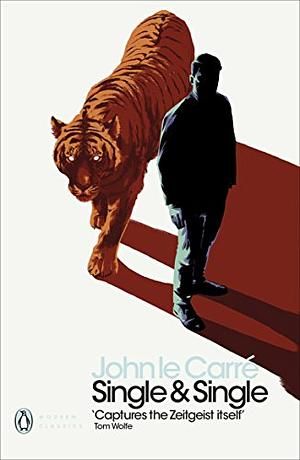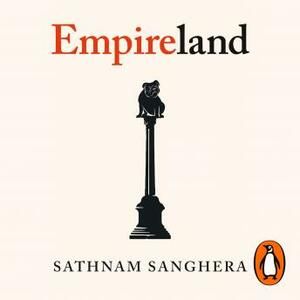
Prescient warning about gangster capitalism from a master of fiction, plus imperialism's shaping of modern Britain
Single & Single

by John le Carré
3.75 ⭐️
adventurous; dark; emotional; mysterious; tense; medium-paced
- Plot- or character-driven? A mix
- Strong character development? Yes
- Loveable characters? It's complicated
- Diverse cast of characters? Yes
- Flaws of characters a main focus? Yes
I've read most of le Carré's work, but this is my first read of Single & Single. I enjoyed it a lot, a great addition to his bibliography in his post-espionage era writing. Single & Single is a kind of whodunnit, a chase story, as customs officer Nat Brock follows the trail of fraudster Tiger Single. Aided by his son Oliver Single, Brock unravels the mystery of an international money-laundering operation and the execution of corporate lawyer, Alfred Winser.
John le Carré is amongst my favourite authors, and has been a major inspiration for me as a writer. His characters are real humans, complex people with multiple and conflicting values and aims. His prose respects the reader, assumes they are mature, that they are enagaged and capable. He creates lots of space for the reader to complete the reading.
This book was a great example of that. It's not noted as a le Carré classic like, say, Tinker, Tailor, Soldier, Spy, or even The Constant Gardener, but I'd say Single & Single is certainly underrated and overlooked.
The book depicts the ramifications of the collapse of the USSR, the looting of state resources, and the rise of the oligarchs and 'gangster capitalism'. Given that the book was originally published in 1999, it's an astonishingly early exposure of things that have only been fully revealed in more recent journalism and non-fiction works like Catherine Belton's Putin's People or Tom Burgis's Kleptopia.
Empireland
(audiobook)

by Sathnam Sanghera
with Homer Todiwala (narrator)
4.5 ⭐️
adventurous; challenging; dark; emotional; hopeful; informative; inspiring; sad; medium-paced
This is an excellent book — Sathnam Sanghera's examination of how imperialism has shaped modern Britain. It's a difficult and divisive subject, and Sanghera does a really impressive job in taking on the topic without blinking, regardless of how horrific or problematic the things that need to be discussed. And he approaches without resorting to easy caricatures or turning his gaze away.
The book covers a lot of ground, and approaches all the important dimensions from a multitude of angles, in turns personal memoire and introspection, history, investigative journalism, and polemic, just what's needed for this subject.
Sanghera's examination puts history over ideology and his analysis is nuanced and deeply challenging. This is a must-read, in my view, for anyone wanting to comprehend modern Britain.